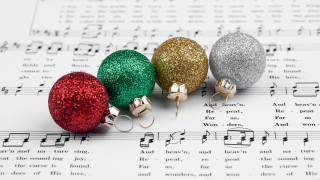
One of the world’s most recognizable Christmas songs may not be a Christmas song at all.
The holiday classic "Jingle Bells" may have you dashing through the snow and longing for a ride on a horse-drawn sleigh, but the 19th-century song was never intended to celebrate the Christmas season.
In fact, the lyrics make no reference to the December holiday at all.
Historians say the song, written by James Lord Pierpont (the uncle of financier J.P. Morgan) in 1850, may have first been performed at a Thanksgiving church service.
Get South Florida local news, weather forecasts and entertainment stories to your inbox. Sign up for NBC South Florida newsletters.
The song is believed to be inspired by sleigh races in Medford, Massachusetts, a town about five miles outside of Boston.
In another town, about 1,000 miles away from Medford, residents claim their city was actually the birthplace of the holiday jingle.
The song’s origins are long disputed between Medford and Savannah, Georgia, according to Boston University.
Residents in Savannah claim the songwriter penned "Jingle Bells" in their town in 1857. Pierpont was buried in the Georgia city following his death in 1893.
In 2021, a newspaper in Georgia said “the documented evidence leans in Savannah’s favor," leaving room for even more speculation.
A plaque in Medford commemorates the song and its supposed Massachusetts ties, even citing a witness to the song’s writing at a local tavern in 1850. The town also holds an annual Jingle Bell Festival in the song’s honor.
While the definitive birthplace of the song remains unclear, it did indeed take decades for "Jingle Bells" to become a Christmas classic.
Today, you’ll hear modern renditions of "Jingle Bells" on most Christmas albums despite its Thanksgiving origins.
While the song may have been first introduced for the November holiday, chances are you’ll be hearing "Jingle Bells" until the new year.




